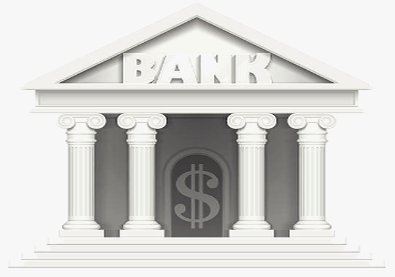Accredited InvestorsAltcoinAnatoli UnitskyAnti-Money Laundering (AML) In CryptoAPIArbitrageArtCoin TokenArticle DirectoryASICAuction Terminology GlossaryBasics of Stock Market InvestingBear MarketBest Crypto Payment Provider In the WorldBitcoinBlockchainBlockchain ConfirmationBlockchain Consensus MechanismBlockchain ForkBlockchain GlossaryBored Ape Yacht ClubBuild a Business That OutperformsBull MarketBuying SkyWay SharesByzantine Fault Tolerance (BFT) ExplainedCasascius CoinCentral Bank Digital Currency (CBDC)Centralized Crypto ExchangeCoinCoinsetCold WalletCollateralCommodity Futures Trading Commission (CFTC)Cross-Chain TechnologyCRUCrypto ExchangeCrypto GlossaryCrypto JokesCrypto Terms to KnowCrypto TickerCryptocurrencyCryptographyCryptojackingCryptounit BlockchainCryptounit GlossaryCryptounit ProgramdApp (Decentralized Application)Dead CoinDecentralized Exchange (DEX)Decentralized Finance (DeFi)Difference Between Bitcoin and EthereumDifferent Ways of Investing MoneyDigital CurrencyDistributed LedgerDo Your Own Research (DYOR)Dollar Cost Averaging (DCA)Dow Jones Industrial Average (DJIA)EncryptionERC-20ERC-721EthereumEvoScentFear Of Missing Out (FOMO)Fear, Uncertainty and Doubt (FUD)Fiat MoneyFNT Fintech CompanyGenesis BlockGlobal Unit PayGlossary of Banking TermsGlossary of Business TermsGlossary of Financial TermsHalvingHODLHot WalletHow Do I Start InvestingHow Rich is Satoshi Nakamoto?How to Create a BlockchainHow to Find Private InvestorsHow to Get Into FintechHow to Program Smart ContractsI Am Thrilled to Be a Part of This Global ProjectInitial Coin Offering (ICO)Initial Public Offering (IPO)Initial Token Offering (ITO)Innovation Basalt TechnologyInnovative Transportation TechnologiesInternational Bank Account Number (IBAN)Investing in Gold Mining StocksInvesting in Gold MiningJagerJoy of Missing Out (JOMO)Know Your Customer (KYC)LedgerLiquidity in CryptocurrencyMaker and Taker Fees in Crypto TradingMarket Capitalization (Market Cap)Meme CoinMetal Credit CardMetaMaskMillenials Now Have Access to Generational WealthMy Best Investment EverNew Digital EvolutionNFT GlossaryOff-Chain TransactionsOn-Chain TransactionsOpen Edition NFTPeer-to-Peer (P2P)Personal Loan GlossaryProbably the Best STO on the MarketProof of Stake (PoS)Real Estate Glossary of TermsReal Estate Investing GlossaryRebase TokenSecurities and Exchange Commission (SEC)Security Token ExchangesSecurity Token Offering (STO)Soulbound Decentralized Identities for Security TokensSoulbound ID Launch by Stobox Proves a SuccessSoulbound TokensStoboxStock Market GlossaryTestimonialsTether Platform and Token (USDT)UnitEx ExchangeUnitsky String TechnologiesUNTBUSDUValidatorWe Started Investing When We Were 25What are Blue Chip NFT?What are Blue Chip Stocks?What are Crypto Assets?What are Crypto Smart Contracts?What are CryptoPunks NFT?What are Digital Assets?What are Digital Collectibles?What are Gas Fees?What are Gas Wars?What are Hashmasks?What are Non Fungible Tokens?What are Non-Sufficient Funds (NSF)?What are Soulbound Tokens (SBT)?What are Stablecoins in Crypto?What are Transactions Per Second (TPS)?What are Utility NFTs?What are Utility Tokens?What Does Burning Crypto Mean?What Does Diamond Hands Mean?What Does Paper Hands Mean?What Does To The Moon Mean?What Does WAGMI Mean?What Happened to Satoshi Nakamoto?What is a 51% Attack?What is a Baby Boomer?What is a Backlink?What is a Banner?What is a Barcode?What is a Bid-Ask Spread in Crypto?What is a Block in Blockchain?What is a Block Reward?What is a Blockchain Address?What is a Blockchain Node?What is a Blockchain Oracle?What is a Blog?What is a Bond?What is a Bot?What is a Broker?What is a Business Accelerator?What is a Cash Cow?What is a Commercial Bank?What is a Commodity?What is a Con?What is a Credit?What is a Credit Limit?What is a Credit Rating?What is a Crypto Airdrop?What is a Crypto Bridge?What is a Crypto Scam?What is a Crypto Token?What is a Crypto Wallet?What is a Crypto Whale?What is a Crypto Winter?What is a Cryptocurrency Public Ledger?What is a Cryptocurrency Roadmap?What is a DAO?What is a Dark Pool?What is a Day Trader?What is a Dead Cat Bounce?What is a Default?What is a Derivative?What is a Digital Credit Card?What is a Fiscal Quarter?What is a Fungible Token?What is a Governance Token?What is a Grace Period?What is a Hard Fork?What is a Hot Wallet?What is a Hybrid Blockchain?What is a Hybrid PoW/PoS?What is a Joint Account?What is a Market Cap?What is a Merkle Tree in Blockchain?What is a Mining Farm?What is a Nonce? What is a PFP NFT?What is a POS System?What is a Prepaid Card?What is a Private Blockchain?What is a Private Key?What is a Public Blockchain?What is a Public Key?What is a Reserve Currency?What is a Ring Signature?What is a Routing Number?What is a Rug Pull in Crypto?What is a Safe Deposit Box?What is a Satoshi?What is a Security Token?What is a Seed Phrase?What is a Shitcoin?What is a Sidechain?What is a Soft Fork?What is a Spot Market?What is a State Bank?What is a SWIFT Code?What is a Tax Identification Number (TIN)?What is a Time Deposit?What is a Transaction Account?What is a Variable Interest Rate?What is a Virtual Assistant (VA)?What is a Virtual Card?What is a Virtual Currency?What is a Visa Card?What is a Whitelist in Crypto?What is a Whitepaper?What is Accounts Payable (AP)?What is AMA in Crypto?What is Amortization?What is an Accrual?What is an ACH Transfer?What is an Actuary?What is an Addendum?What is an Algorithm?What is an Angel Investor?What is an Annuity?What is an Asset?What is an ATM?What is an Atomic Swap?What is an Audit?What is an Avatar?What is an EIN?What is an Embargo?What is an Entrepreneur?What is an IDO (Initial Dex Offering)?What is an Interest Rate?What is an Internet cookie?What is an Investment Bank?What is an NFT Drop?What is an NFT Floor Price?What is an Ommer Block?What is an Orphan Block?What is an Outstanding Check?What is an Overdraft?What is Artificial Intelligence (AI)?What is B2B (Business-to-Business)?What is B2G (Business-to-Government)?What is Bartering?What is Bitcoin Dominance?What is Bitcoin Pizza Day?What is Blockchain Immutability?What is Blockchain Used For?What is BRICS?What is Business-to-Consumer (B2C)?What is C2C (Customer to Customer)?What is Capitalism?What is Catfishing?What is CFD Trading?What is Check Kiting?What is Cloud Mining?What is Communism?What is Content Marketing?What is Decentralization in Blockchain?What is DeFi in Crypto?What is Delisting?What is Depreciation?What is Digital Marketing?What is Diversification?What is Double Spending?What is Dumb Money?What is Dumping?What is Earnings Per Share (EPS)?What is Economics?What is Email Marketing?What is Equity?What is Etherscan?What is Fintech?What is Foreign currency?What is Forex?What is Fundamental Analysis (FA)?What is GameFi?What is Generative Art NFT?What is Gwei?What is Hard Currency?What is Hash Rate?What is Hashing in Blockchain?What is Inflation?What is Initial Game Offering (IGO)?What is Interest?What is Interest Income?What is Mainnet?What is Mastercard?What is Metaverse in Crypto?What is Mining in Cryptocurrency?What is Minting NFT?What is Mobile Banking?What is Money Laundering?What is NFT Alpha?What is NFT Metadata?What is NFT Rarity?What is NGMI Meaning?What is Nominal Interest Rate?What is Online Banking?What is Open-End Credit?What is OpenSea NFT Marketplace?What is Personal Identification Number (PIN)?What is Play-to-Earn?What is Polygon?What is Proof of Authority (PoA)?What is Proof of Work (PoW)?What is Public Key Cryptography?What is Pump and Dump?What is Quantum Computing?What is Refinancing?What is Retail Banking?What is Ripple?What is Sharding?What is Slippage in Crypto?What is Smart Money?What is Solvency?What is Soulbound ID?What is SSL?What is Staking in Cryptocurrency?What is Technical Analysis (TA)?What is Testnet?What is the Ask Price?What is the Better Business Bureau (BBB)?What is the Bid Price?What is the Dark Web?What is the InterPlanetary File System (IPFS)?What is the Gold Standard?What is the Lightning Network?What is the Prime Rate?What is the Sandbox?What is the Secondary Market?What is the World Bank?What is Tier 1 Capital?What is Tokenomics?What is TRC-20?What is Universal Banking?What is Unspent Transaction Output (UTXO)?What is Usury?What is Volatility in Crypto?What is Wash Trading?What is Web3?What is Whisper?What is XRP?What is Zero-Knowledge Proof (ZKP)?Who is Beeple?Who is Satoshi Nakamoto?Who is Vitalik Buterin?Why Tokenization is a Safe HavenWhy You Should Try Your Hand at Trading
What is Capitalism?
- Home
- Glossary of Business Terms
- What is Capitalism?
Although the concept of capitalism may appear straightforward in theory, its practical application is far more complex and can produce both beneficial and detrimental outcomes.

In this article, we will explore how capitalism operates and examine its potential advantages and drawbacks.
What is Capitalism?
Capitalism is a system of economic organization in which private individuals or companies own and operate the means of production and distribution of goods and services. It is characterized by the pursuit of profit and the market exchange of goods and services through supply and demand.
In a capitalist system, individuals and companies are free to pursue their own self-interests in the production and exchange of goods and services. They are motivated by the profit motive, which incentivizes them to produce goods and services efficiently and effectively, and to innovate and invest in new technologies and ideas.
Capitalism has been the dominant economic system in the world for centuries and has brought about unprecedented levels of economic growth and material prosperity. It has allowed for the creation of wealth on a scale never before seen, and has lifted millions of people out of poverty.
However, capitalism is not without its critics, who argue that it can lead to inequality, environmental degradation, and social and political instability.
Origins of Capitalism
Capitalism originated in the mercantilist era of the 16th and 17th centuries, when European nations colonized other countries and exploited their natural resources to accumulate wealth and power. This led to the rise of a new class of merchants and entrepreneurs who challenged feudal aristocracy and the church by investing in new technologies and industries.
The Industrial Revolution of the 18th and 19th centuries marked the beginning of modern capitalism, as advances in technology and transportation enabled mass production and distribution of goods. The growth of international trade and commerce, combined with property rights and the rule of law, provided a stable legal framework for economic activity and created new opportunities for investment and growth.
Features of Capitalism
Capitalism is characterized by several key features, including private property, free markets, and the pursuit of profit.
- Private Property: In a capitalist system, individuals and companies are free to own and control the means of production, including land, buildings, and equipment. This allows them to use these resources to produce goods and services for sale on the open market.
- Free Markets: Capitalism is based on the principle of supply and demand, and the market exchange of goods and services. Prices are set by the interaction of buyers and sellers, and are determined by the relative scarcity and value of goods and services.
- Pursuit of Profit: The profit motive is a key feature of capitalism, and drives individuals and companies to innovate, invest, and produce goods and services more efficiently and effectively. The pursuit of profit is seen as a positive force in the economy, as it incentivizes individuals and companies to create value and generate wealth.
Benefits of Capitalism
Capitalism is a powerful economic system that has brought about significant changes in history, enabling the creation of immense wealth and lifting millions of people out of poverty. One of its key advantages is its ability to efficiently allocate resources by allowing the market to determine prices, which encourages individuals and businesses to use resources in the most productive and effective manner possible.
Capitalism also champions individual freedom and choice, allowing individuals and companies to pursue their self-interests without government control. This promotes greater personal autonomy and responsibility and encourages the development of diverse and innovative ideas. In countries like the United States, capitalism has proven to be a potent driver of social mobility and poverty reduction, providing opportunities for upward mobility and wealth accumulation.
Furthermore, capitalism incentivizes innovation and productivity, leading to heightened economic growth and prosperity. However, the system is not without its challenges and criticisms, such as the potential for economic inequality, environmental degradation, and the undervaluing of social and cultural values.
Challenges and Criticisms of Capitalism
While capitalism has brought about many benefits, it is not without its challenges and criticisms. One of the most significant criticisms of capitalism is its tendency to create economic inequality. Because the pursuit of profit can lead to the concentration of wealth in the hands of a few, there is a risk that some individuals and groups may be left behind.
This can be particularly problematic in cases where economic inequality becomes extreme, as it can lead to social and political instability. Some critics of capitalism argue that it can exacerbate divisions between the rich and poor, and create a system of “haves” and “have-nots” that is inherently unjust.
Another criticism of capitalism is its potential impact on the environment. Because capitalism is based on the principle of growth and expansion, it can lead to the overuse of natural resources and the degradation of the environment. This can have significant long-term consequences for the planet and for future generations.
Finally, capitalism has also been criticized for its potential impact on social and cultural values. Because the pursuit of profit is often the driving force behind economic activity, there is a risk that other values, such as community, altruism, and compassion, may be overlooked or undervalued.
Related Articles

What is Tier 1 Capital?
Tier 1 capital consists of common stock and disclosed reserves, such as retained earnings. It is seen as the most reliable measure of a bank's financial strength and is used by...

What is the World Bank?
Critics of the World Bank argue that its lending practices have sometimes been ineffective or even harmful, and that it has focused too much on...
- Home
- Glossary of Business Terms
- What is Capitalism?